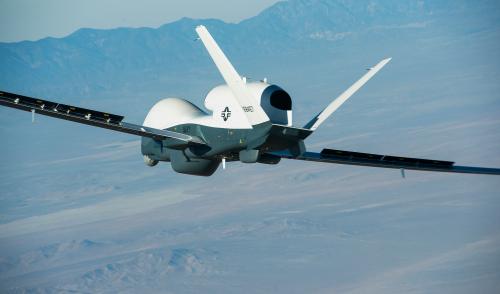The newly passed intelligence reform bill is a big first step in the overhaul of the US intelligence community. As tough as the legislative battle was, the hard part is implementing that overhaul.
The next step lies with George W. Bush. He must pick a skilled and visionary manager for the position of director of national intelligence (DNI) and then make it clear he will back that person through the challenges that certainly lie ahead.
The legislation is the product of many expert evaluations of the intelligence community’s failings, including those of the House-Senate joint inquiry into the attacks of September 11 2001 and the independent 9/11 Commission.
In the course of enactment, there were the usual compromises, which are a necessary part of the legislative process. It is the responsibility of the president to ensure that any ambiguities—such as the DNI’s budgetary authority—are resolved in a way that achieves the vision of reforming the intelligence agencies to protect the American people better against post-cold war threats.
While this legislation’s model will require continual evaluation and perfection, we do start with a set of tools that a DNI can use to launch meaningful reforms—if his agenda is clear and focused. We offer four suggestions of what that agenda should include.
First, the new director of national intelligence needs to ensure that compromise language inserted in the bill directing the president to issue guidelines for implementation that will “respect and not abrogate the statutory authorities of the heads of the departments” does not become a poison pill that undermines real change. Interpreting this language to mean that guidelines will be drafted so as not to interfere with the ability of department heads to fulfil their core missions would be in the spirit of the compromise accepted by the Senate and House negotiators. Interpreting the language to mean that the defence department should lose none of its current author ity over national intelligence assets would neuter the DNI.
Second, the DNI needs to take control of the budgetary process for the whole intelligence community. On his first day, the DNI should thoroughly review the current budget and put his stamp on it, making changes if he judges them necessary. He should also make clear that, in the formulation of subsequent budgets, he will be in charge of the process—not the Pentagon or individual intelligence agencies.
Third, the DNI needs to become the president’s chief adviser on intelligence in more than just name. To that end, he should ask the president to make him the executor of the new presidential directive on reform of the Central Intelligence Agency and Federal Bureau of Investigation. With presidential backing, the DNI should also instruct the CIA director to present the plans for revamping the agency, which were ordered last month by Mr Bush, for review by the DNI before they are presented to the president.
Finally, the DNI needs to make the “mission-based centre” model the template for all the intelligence community’s day-to-day operations and not only for the national counter-terrorism centre. On taking office, he should order a 90-day review to determine the substantive definition of national intelligence centres that would cover the highest priority intelligence targets, making clear that he intends to set those centres up before his first year in office is over.
This last step is particularly important. George Tenet, former director of central intelligence, opposed the intelligence reform bill because, in his view, it was a bad idea to have an intelligence chief who did not directly command operations officers and analysts. Indeed, the national interest will not be served by creating an intelligence “tsar” who reigns over the intelligence community but does not rule it. But, by creating national intelligence centres that report to him, the DNI would create a solid operational base for himself and his successors.
If the first DNI, with the support of Mr Bush, takes these steps, along with others to increase the integrated nature of our national intelligence effort, the vision of the 9/11 Commission could still be realised in full. Even more importantly, America would be safer and more secure.


Commentary
Op-edA To-Do List for America’s New Spy Chief
December 16, 2004